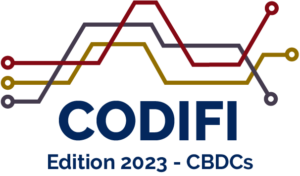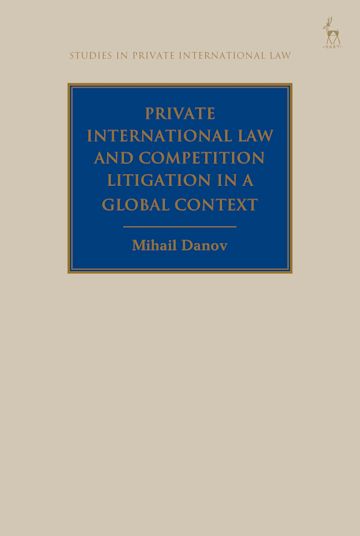Views
Anti-Semitism – Responses of Private International Law
Prof. Dr. Marc-Philippe Weller and Markus Lieberknecht, Heidelberg University, have kindly provided us with the following blog post which is a condensed abstract of the authors’ article in the Juristenzeitung (JZ) 2019, p. 317 et seqq. which explores the topic in greater detail and includes comprehensive references to the relevant case law and literature.
In one of the most controversial German judgments of 2018, the Higher Regional Court of Frankfurt held that the air carrier Kuwait Airways could refuse transportation to an Israeli citizen living in Germany because fulfilling the contract would violate an anti-Israel boycott statute enacted by Kuwait in 1964. The Israeli citizen had validly booked a flight from Frankfurt to Bangkok with a layover in Kuwait City. However, Kuwait Airways hindered the Israeli passenger from boarding the aircraft in Frankfurt. According to the judgment of the Frankfurt Court, Kuwait Airways acted in line with the German legal framework: specific performance of the contract of carriage was deemed to be impossible because of the Kuwait boycott statute. Read more
Regulating International Organisations: What Role for Private International Law?
Written by Dr Rishi Gulati, LSE Fellow in Law, London School of Economics; Barrister, Victorian Bar, Australia
The regulation of public international organisations (IOs) has been brought into sharp focus following the landmark US Supreme Court ruling in Jam v International Finance Corporation586 US (2019) (Jam). Jam is remarkable because the virtually absolute immunities enjoyed by some important IOs have now been limited in the US (where several IOs are based), giving some hope that access to justice for the victims of institutional action may finally become a reality. Jam has no doubt reinvigorated the debate about the regulation of IOs. This post calls for private international law to play its part in that broader debate. After briefly setting out the decision in Jam, a call for a greater role for private international law in the governance of IOs is made. Read more
Viewing the “Arrangement Concerning Mutual Assistance in Court-ordered Interim Measures in Aid of Arbitral Proceedings by the Courts of the Mainland and of the Hong Kong Special Administrative Region” as a Window onto the New Legal Hubs
Written by Matthew S. Erie, Associate Professor of Modern Chinese Studies and Fellow at St. Cross College, University of Oxford
On April 2, 2019, the Government of the Hong Kong Special Administrative Region (“HKSAR”) and the Supreme People’s Court of the People’s Republic of China” (“Supreme People’s Court”) signed an Arrangement Concerning Mutual Assistance in Court-ordered Interim Measures in Aid of Arbitral Proceedings by the Courts of the Mainland and of the HKSAR (hereinafter, “the Arrangement Concerning Mutual Assistance,” see English translation here). This is a momentous development in the growth of international commercial arbitration in both mainland China (also, the “PRC”) and Hong Kong as it is the first time that such a mechanism has been put in place to allow Chinese courts to render interim relief to support arbitrations seated outside of the PRC. Read more
News
HCCH CODIFI Edition 2023 – CBDCs

The Permanent Bureau is pleased to announce that a colloquium on Central Bank Digital Currencies (CBDCs), titled “CODIFI Edition 2023 – CBDCs”, will be held online on Thursday 5 October 2023, following the mandate of the Council on General Affairs and Policy (CGAP) at its 2023 meeting (C&D No 17).
CODIFI Edition 2023 – CBDCs will cover selected topics related to the HCCH’s CBDCs Project, established by CGAP in March 2023 with the mandate to study the private international law implications of CBDCs. The colloquium will feature a series of pre-recorded video discussions, led by subject-matter experts of the CBDCs Project and other specialists of academia, government, and industry. Live discussion sessions will also take place on the same day to summarise the proceedings and provide more insights and some ideas on the way forward.
Out Now: Private International Law and Competition Litigation in a Global Context, by Mihail Danov

Description
This important book systematically analyses the private international law issues regarding private antitrust damages claims which arise out of transnational competition law infringements. It identifies those problems that need to be considered by injured parties, defendants, judges and policy-makers when dealing with cross-border private antitrust damages claims in a global context. It considers the post-Brexit landscape and the implications in cross border private proceedings before the English courts and suggests how the legal landscape should be developed. It also sets out how private international law techniques could play an increasingly important role in private antitrust enforcement.
Comprehensive and rigorous, this is required reading for scholars of both competition litigation and private international law.
Commercial Disputes and anti-suit relief in Anglophone Africa
Reposted from Thought Leaders 4 Fire
Commercial Disputes and anti-suit relief in Anglophone Africa – a panel discussion
06 Oct 2023
Location: 12:00-1:00 pm UK Time Virtual Event (Zoom)
Members: FREE to attend – Book by 06 Oct
Non Members: Register above as a member and attend for FREE – Book by 06 Oct


